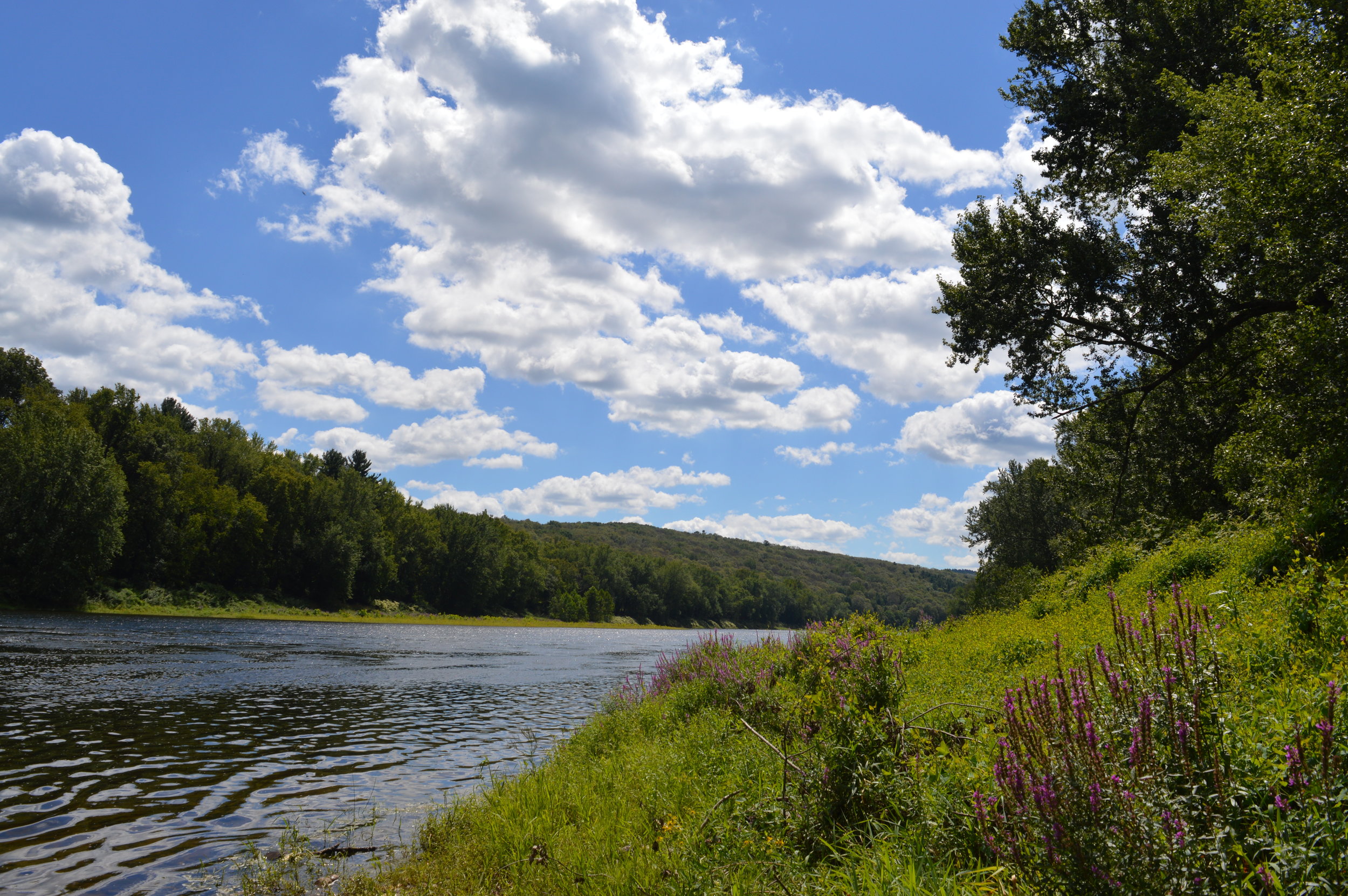How Important is Clean Water to New Jersey’s College Students?
By Gina Errico, Communications Intern, Coalition for the Delaware River Watershed
It is important that people are aware of the quality of their water and how it affects them and their surrounding environment. On the College of New Jersey’s (TCNJ) campus in Mercer County, students and faculty experience issues with water quality often enough that it has raised concerns about the water they’re drinking and the aquatic habitats that surround the college.
Lake Sylva, Ewing, NJ by Christopher Masusock
At least once a year, the campus community and local residents are issued a warning about harmful algal blooms in the lakes, and are advised to stay away from the water. Algal blooms are a rapid increase in the population of algae in a marine ecosystem and are a result of increased nutrients in the water. Algae live in aquatic systems at sustainable levels but when chemicals from pesticide and fertilizer use runoff into these systems, it facilitates the rapid population growth of algae. This results in a decrease of dissolved oxygen in the water which is harmful to the ecosystems and wildlife that depend on them.
One student run group, People for Plants, created a campaign to promote eco-friendly grounds management and focused part of their campaign goals on the reduction and elimination of harmful pesticides and fertilizers in the soils on TCNJ campus. Land-applied pesticides are carried into our waterways when rain and melting snow create runoff. Their goal was created in hopes of reducing the harmful effects grounds management products have on nearby water sources and wildlife. By eliminating the chemical treatment of soils, oxygen levels in the lakes will improve, creating safer lake water and healthier habitats, which will support local wildlife.
“The cause of these blooms is linked to the excessive amount of chemicals used to maintain the grounds. By reducing and eventually eliminating the use of these chemicals, the lakes will become a safe place for people and wildlife alike,” says Class of 2020 TCNJ student Mackenzie Richards.
There is also a concern among students about the quality of drinking water. In late September, TCNJ, as well as, Ewing, Trenton, Hamilton, and Lawrence Township residents received a boil water advisory from Trenton Water Works that lasted just over 24 hours. The advisory stated that there was an issue with the water disinfection process due to equipment malfunction, warning residents to boil tap water and/or used bottled water to drink, cook, brush teeth, etc. Although the advisory was only issued for a day, from the students’ perspective, it was frustrating to have to think about the safety of using water, even for a few days after the advisory was over. Most students now, if they did not already before, use some sort of filtration system when drinking water from the tap but still fear that they will face water issues again.
“I’m still concerned now about the quality, even though the advisory was lifted. I bought a water filter and use it whenever I can, but there’s only so much you can do especially when you’re basically stuck on campus,” reflected Class of 2020 TCNJ student Shaun Meyers.
For a lot of students, it has become important for them to be aware of where their water comes from and what the threats are to its safety and cleanliness. It has opened a lot of students’ minds to the global water crisis and what it really means to have clean water. All over the world, there are growing numbers of communities that lack access to clean drinking water, making it even more important for us to protect our local water sources, such as the Delaware River, where TCNJ get its water from.
“When I think about water, I mostly think about how lead pipes can lead to unsafe drinking water. I also think about the water crisis all around the world. I put into perspective how paranoid I am when it comes to drinking water compared to people in other states and countries who would desperately drink the water I have access to,” explains Class of 2020 TCNJ student Renee Rosato.
Water is a necessity to life, and it is important that people are aware of where their water comes from. Younger generations have the most to lose in the emerging water crisis because it will ultimately be our water that is affected, making it all the more important that our voices are heard with elected officials and that our water is protected for generations to come.




